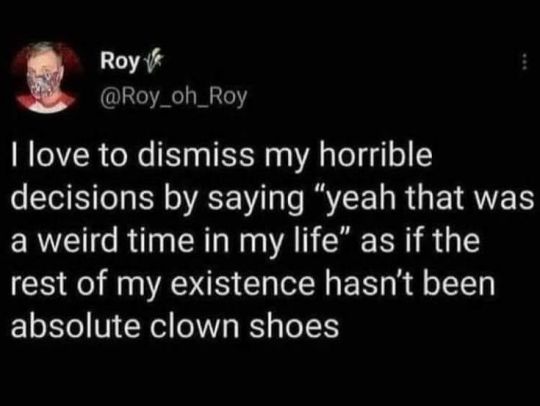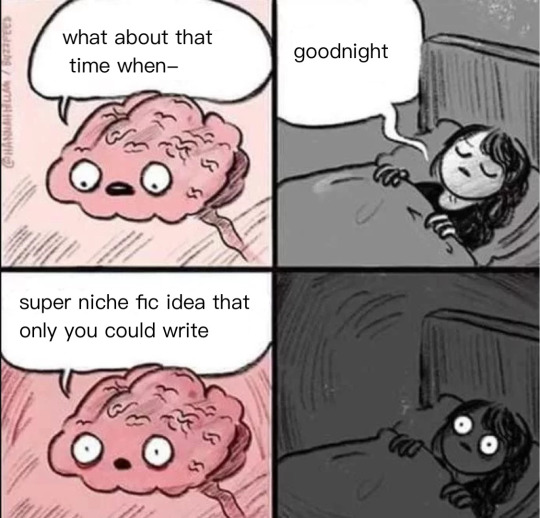Text
The passage of time… that was never an issue for elves. But for humans?
…300 years of marriage, that’s not an easily achievable feat.
You look at your spouse, still alive and well, making breakfast for you.
“Love, how old are you?” You asked.
Your spouse didn’t reply.
Maybe that was too straight forward, maybe you should ask for their birthday instead, but it’s ridiculous to forget the birthday of your spouse of 300 years.
“The eggs are ready.” Your spouse said, as they’ve been saying for almost 250 years now.
You feel yourself ease back into the comfortable spot where you’ve been living happily with your spouse for 300 years, you relaxed, your shoulders sagged as you enjoyed the empty plate.
Your spouse’s skeletal body stood in front of you, stiff as always.
You looked at them lovingly.
And you always will.
For elves, the neat part about taking human lovers is the relatively short time of commitment. After reaching 300 years of marriage, you’re starting to get suspicious of your spouse.
4K notes
·
View notes
Text
Love how tumblr has its own folk stories. Yeah the God of Arepo we’ve all heard the story and we all still cry about it. Yeah that one about the woman locked up for centuries finally getting free. That one about the witch who would marry anyone who could get her house key from her cat and it’s revealed she IS the cat after the narrator befriends the cat.
323K notes
·
View notes
Text
The Conflicts of Disney's Hercules (Part 3): Hades vs Zeus
Brother vs brother- talk about a tale as old as time, huh? From Cain and Abel to Hamlet and Claudius to the more modern examples of Mufasa and Scar to Thor and Loki, what's not to hate about about two brothers at odds with one another? Well technically its more of an angsty, brooding guy who's had it up to here with their perfect golden retriever brother getting the throne, daddy's attention, and/or the girl. While our bootiful no-thoughts head empty golden child becomes intimately aware at the last possible second of their brother's treachery as they're falling into your proverbial wildebeest stampede.
That's right y'all.
May I present to the surprise of no one.
THEM:
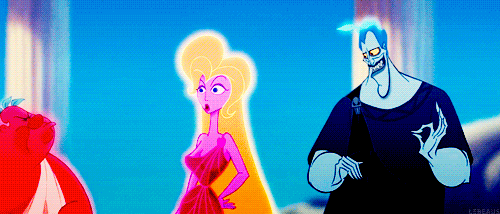
Finally we come to the conflict that sent the proverbial Sisyphean boulder into motion that is Disney's Hercules.
Part I: And now a word from our IV pound sponsor:
Before I begin my analysis on the relationship between Disney's Hades and Zeus, I thought I would provide a bit of background to the established canon Disney presents us. Mind you, dear reader, we have the 1997 film and the Hercules animated TV show (1998) to look towards. However, there are minor conflicting information between the two, but as always, the movie is always more canon than what the TV show gave us.
Zeus is older, Hades is younger. Weird I know.
But I'm gonna go out on a limb here and support Disney on this one. Because while in the grand scheme of things Hades is most definitely NOT the youngest child of the siblings in Greek Myth, there is a small technicality that cements Zeus' authority to rule over his older siblings as if Zeus was the firstborn child this whole time.
That technicality being: Kronos

Kronos gets the big bag prophecy/curse from Gaia that one of his children will overthrow him like he did with his dad, so Kronos starts baking his cake and eating it too.
Hades was the first male born (hestia is traditionally firstborn but patriarchy or whatevs) so that also made him the first to be swallowed by Kronos. Thus, when Zeus freed the rest of his siblings, Hades was the last son to be up-chucked since he was ingested first - that made Hades the last "born."
And this "second birth" of Poseidon, Hera, Demeter, Hades, and Hestia is what cements the order of authority in the 6 siblings hierarchy. Therefore, Zeus was made firstborn and had full authority to claim the sky if he so desired.
But Zeus was a chad in those days and still gave his brothers a chance to draw lots and all that b/c even he saw how unfair the Fates had been to his brothers. Yet still, destiny favored Zeus and Mr. High and Mighty got the kingdom with a view.
Which is a perfect segway to the next set of rules I'm working with here:
2. Zeus is a good guy.

Okay, I know it hurts to accept this, buttercups, but we have to muscle through it. The version of Zeus that we got in Disney's Hercules is a sanitized, lovable goofball who loves his son, his wife (is that allowed?), and his brother who's going through a phase.
BTW I would like to draw attention to the fact this is the first time in an adaptation of greek myth where Hera is Hercules' bio mother. This is clearly outlining to the audience- hey! Zeus is faithful?
So Zeusy's worst flaw (infidelity, Don Juan, insatiable sexual appetite- pick your poison) has been erased. That's wild, but we have to accept this to better understand the context of Hades vs Zeus. We have to establish who has morality in this equation. Earlier parts of my Hercules Conflicts series had obvious good guys vs Hades, but for this one I have to build it up because of the history of these mythological figures.
However, before I roll into it, I would like to dig on Mr. Thunder Dunder Head once.
This man violated the Geneva Conventions doing this to Danny DeVito:
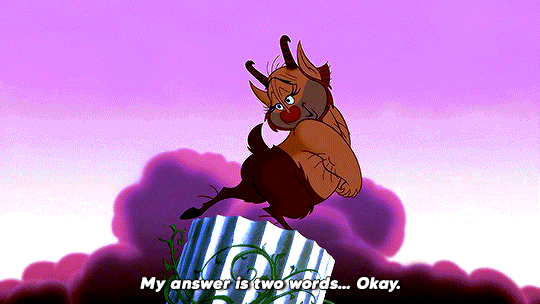
Talk about some Zeus ex machina- yeesh.
Part II: And Then Along Came Zeus

With the introduction out of the way, now we can talk about the central conflict that kickstarted this movie into gear.
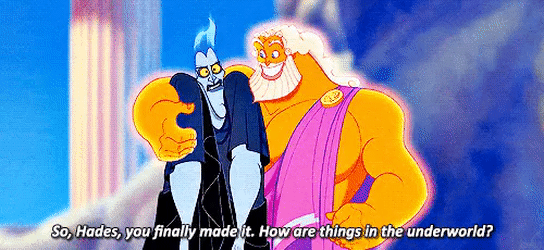
From the get-go, Hades establishes that he doesn't reciprocate his brother's affection. What should've been a good ol' fashioned family reunion turned into a neon flashing sign that Hades is very uncomfy around his brother. Hell, even when Zeus is trying to be friendly he ends up ordering him around.
And I don't think anyone's mentioned this before, but doesn't it seem like Zeus is just as touchy-feely here as Hades is with those beneath them? It makes me wonder if Hades learned this behavior from Zeus.

Now, we also get the idea that Zeus is clueless. Not just to how Hades is purposefully keeping him at arm's length, but also to how the other party guests, the gods, get very quiet and passive aggressive the second Hades showed up to spoil the party.
And you better believe this three-minute scene is the basis for this entire post. And there is a lot to digest here.
First off, we get Hades' motivation, his goals, and the receipts. You better believe this babe is writing in his little black burn book as soon as he gets back in his chariot.
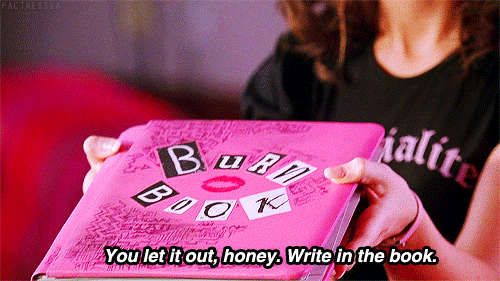
From Zeus, to Hercules, to the rest of the gods, home boy has a lot to update after popping in after a long time. And I hate to be that guy, but a show of hands on who felt more sympathetic for Hades here?

Like I've mentioned in Disney's Most Sympathetic villain post already, but Hades' villain entrance is not intimidating in the slightest. If anything, it quickly establishes that Hades is kind of a loser in these circles.
To recap, while on Mt Olympus for two minutes Hades is:
Manhandled by his older brother
Manhandled by his nephew (ok i get this one, he nearly hurt a baby, those are spikes after all)
Ignored. Nobody but Zeus makes eye contact/or acknowledges him. More than likely this is b/c they can't stand the guy and out of respect for Zeus they've elected to just ignore him and hope he goes away.
Zeus gaslights him - yes, the guy who gave him the underworld job is telling him to slow down and live a little. That's like your boss gives you a crap load of work and comes by to ask you why he never sees you take time off. I will die on this hill that's positively diabolical.
And lastly, Hades gets laughed off the mountain.
Not once in this entire film did Zeus ever check up on Hades after this. Not to apologize, not to make up for lost time, bring up an opportunity for a party you could come to, or perform a wellness check. That would've been so hilarious seeing Zeus pop into the underworld and the entire scene is just Hades shenanigans of trying to cover up evidence of his plot to murder this guy.
Although to be fair, Myth!Zeus had the same issue!
BUT to Myth!Zeus's credit, he made an attempt to improve his brooding brother's mood. And he did it in the worst way possible by immediately fixing him up with Persephone. So you really can't say that Myth!Zeus isn't trying.
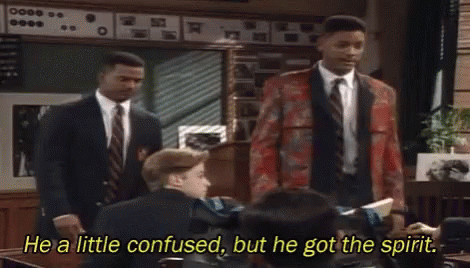
Now since I've bashed Zeus I will give him some credit on his first scene. Hades isn't there to stay and chat, he's on a recon mission. And he evades all his brother's attempts at conversation. He cuts bolt boy off, uses humor as a defense mechanism, and he deflects every time Zeus tries to get cozy. Why?
Homeboy found out a new godling was born.

And the way the movie presents Baby Hercules- from Zeus being awkward and kind of scared to hold him- I get the vibes that the writers are making Zeus out to be a first time dad.
Yeah, apparently we're ignoring Athena, Ares, Apollo, Artemis, Bacchus, Hermes, Hephaestus, etc
Wild I know, but there is a purpose to it.
@persephoneflowerpetals made a very interesting blog post about this particular aspect that deserves a look and got me to thinking.
So not to steal their thunder, but Hades showing up to Hercules' Amphidromia (ancient greek family festival where newborn babies are given their name in front of their family & friends on 5th or 7th day of life) was for him to see who his competition was - whether or not Hercules sided with Zeus or not when Hades' own uprising happens.
And by not siding with Zeus, I'm talking about Hercules having his own type of uprising and usurping his father as all the previous kings had done before him.
Which is really cool! It's taking the Lion King/Hamlet story from a different angle. The nephew is just as much of a threat as his father if not more.
You see age doesn't really factor for Greek gods (Artemis was born minutes before her brother and she helped her mom deliver him & the food of the gods aged baby godlings quickly) so it's a very smart move for Hades to see what he was up against very quickly. Hell at this point in time he had no idea he just needed to wait 18 more years for his uprising.
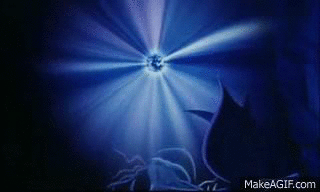
And that's why Hades was more concerned about the sunspot than his own brother. It could very well be that he wouldn't be fighting Zeus, but Hercules for the ownership of the Olympian throne.
This puts Hercules on equal footing with Zeus in terms of level and power and establishes why Herc is the main protagonist- not Zeus.
Hell, if anything, Hades knows from experience that posterity can easily overtake the previous generation. He did that once despite the odds being stacked against him and his siblings even though Gospel Truth claims Zeus stopped the Titans on his own.
Part III: Olympus is That Way
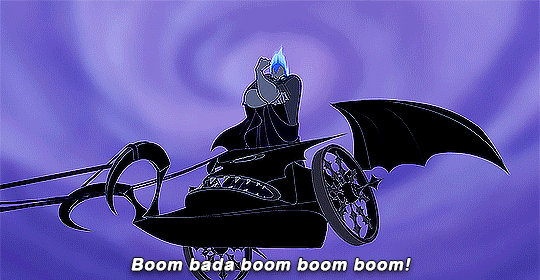
The Titan Jail break will never not be funny to me. We see 5 giant Titans stomping around in the woods, the seas, the fields, cities, etc in what I am assuming is about sunrise?
You mean to tell me there wasn't a single person- or god, we have to remember there are gods in this universe that didn't want to- I don't know- let Zeus know what was coming? I mean it's not like Poseidon would know they were freed from their underwater prison, or Apollo as he's driving his chariot- it is a bit cloudy after all, or any others to notice their cities with mortals actively praying to them are under a massive attack.
Horses were killed, Poseidon. Your descendants. My sibling the horse girl is very disappointed in you.
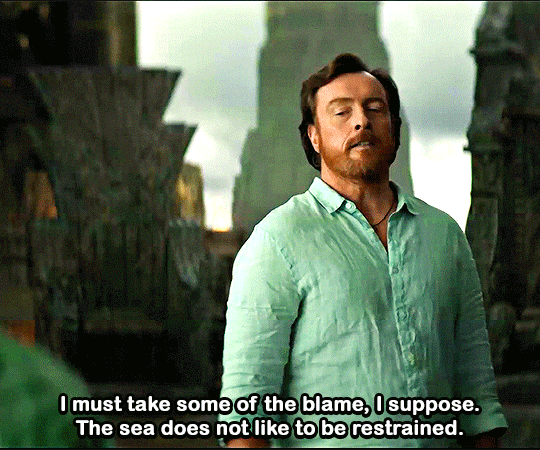
Now I know this is touched upon in my series Hercules Conflicts Part II, but it does merit a mention since ultimately it is Zeus' fault / laziness that the Titans were able to show up on their front doorstep without anyone realizing until too late.
And Zeus is absolutely torn apart when he realizes it was his brooding baby brother who gave him the ol' Judas Kiss.
I couldn't find the gif of Zeus' realization face that maybe what his brother was going through was not just a phase. However, just like Mufasa before him, bolt boy realizes too late of his brother's treachery.
And what's the last line, Hades delivers to Zeus:

Oh?!
Is- is Hades bitter about the job Zeus gave him? Of being ordered around while the rest of the pantheon got to play around and have some fun?
Jokes aside, but Hades' whole plot, all his animosity and antagonism towards Zeus came because of the lot he was given by bolt boy over here. And while Hades does call Zeus his greatest rival it's because Zeus put him in that position in the first place.
Zeus created his worst enemy.
It's like one of my profs commented once in my classes back in my uni days. The oil spill that happened in the Gulf of Mexico didn't happen because of one mistake. It happened because of several mistakes, several oversights, several safety overrides for the sake of not losing money were made over a period of years that eventually lead to a disaster that no longer could be ignored.
And that is ultimately what became Zeus' fatal flaw in this movie.
His negligence.
We can blame the other gods for not being as committed as well, but it's like Hopper says in bug's life:

Zeus is at fault for his brother's betrayal, his son being turned mortal, and the mess the Titan's left in their wake.
So at the end of the movie when the Muses deliver another absolute banger, the system doesn't change. Things go back to the way they were just minus the one guy at the bottom most rung of the cosmos' ladder.
If change is to happen it starts at the top.
Not to end this on a downer- although we all know how screwed this world is after the credits roll, but I am happy to report, dear reader, that change does happen.
It's small, but it's still resounding.
Hercules chooses not to join his father. Just as Hades predicted in the opening scene if you go along with my theory from earlier in this post in Part II. And this wasn't even with the assistance of prophecy, it was because Hades knew his brother too well.
Zeus has a very exclusive club atop Olympus and he would never let someone like Meg, despite all that she's sacrificed and redeemed herself for. Because Meg is a representation of Hades here. Something I was very vocal about in Part 1 of my Hercules Conflicts Series.
And before you argue, remember, Zeus is the one who told Hercules that only gods can live on Olympus. Bolt boy knew Hercules was about to ask for a freebie for her, but his stance was made very clear on the matter.
So, Hercules refuses. Hades was proven to be correct.
Now, Hades just didn't know why Hercules would defect. And Hercules goes back to being a mortal because of Hades. Because Hades put Meg in the right place at the right time. Sure, it's because of Meg that Hades loses. But Hades got someone to realize Olympus isn't all its cracked up to be.
Through mortality.
The very aspect Hades himself represents as lord of the dead and god of the underworld.
Maybe Hades did win after all.

If you made it this far, thanks for reading!
Till next time, my dear readers
~Angel
12 notes
·
View notes
Text
We ask your questions so you don’t have to! Submit your questions to have them posted anonymously as polls.
#English and Cantonese#mandarin too I guess but I’m embarrassed of my own mandarin lmao it’s horrible#and my Chinese grades sucks so
4K notes
·
View notes
Note
Can you please share some words to use instead of "Look", I really struggle with that, it's always "She looked at him in shock" or "He looked at her with a smile". I know there's "Gazed" and "Glanced" but I wanted some advice to use "Look" less
Words To Use Instead of "Look"
Words Closest in Meaning (w diff connotations!):
stare
eye
study
behold
glimpse
peek
glance
notice
observe
inspect
regarding
view
review
look-see
get an eyeful
peer
give the eye
eyeball
size up
size up
check out
examine
contemplate
scan
recognize
sweep
once-over
judge
watch
glare
consider
spot
scrunitize
gaze
gander
ogle
yawp
Other (more fancy) words:
glimmer
sntach
zero in
take stock of
poke into
mope
glaze
grope
rummage
frisk
probe
rivet
distinguish
witness
explore
gloat
scowl
have a gander
comb
detect
surveillance
squint
keeping watch
rubberneck
pout
bore
slant
ignore
audit
pipe
search
note
speculation
simper
4K notes
·
View notes
Text
The "Bathtub Story": Why It's a Problem, How to Fix It, When to Use It

Writing a "bathtub story" is rarely a good idea. It often fits right up there with flashbacks; most of the time you shouldn't use them, but in certain circumstances, you can get away with them. Bathtub stories lack immediacy and as such, often bring the narrative to a grinding halt.
Yet they are common for new writers to write. So let's go over them, why they're a problem, how to fix them, and when to use one (if you dare 😉) . . . I also have a little offer for my followers at the end, so don't miss that 😊
What is a "Bathtub Story"?
The term "bathtub story" originates from author Jerome Stern, who talks about them in his book, Making Shapely Fiction. He writes:
In a bathtub story, a character stays in a single, relatively confined space . . . While in that space the character thinks, remembers, worries, plans, whatever. Before long, readers realize that the character is not going to do anything. . . . The character is not interacting with other people, but just thinking about past interactions. Problems will not be faced, but thought about.
A bathtub story is essentially a story that takes place in introspection.
While most novels won't literally be an entire bathtub story, many new writers have bathtub scenes or chapters, where the character simply reflects and doesn't do anything meaningful. While Stern likens this to someone in a confined tub, I would argue these can happen even when the character is moving. The character may be taking a walk or washing the dishes, but the story elements only exist in her head.

Why Bathtub Stories are Problematic
Bathtub stories are a problem because all the interesting stuff is in the character's mind (if there is any interesting stuff). This brings in several issues.
1. The Story isn't Moving Forward
Because the bathtub story happens in a character's head, the character isn't taking action. Instead, she's likely ruminating on the past. While you can have a characteristically lazy protagonist, when it comes to the actual plot, all protagonists need to be problem-solvers. And not just in thought, but in deed. A true protagonist is a driver of the story. She must be actively trying to solve problems (that come from antagonistic forces and conflict). Otherwise, she is a passive victim or passive observer (in which case, she probably isn't the true protagonist, but just a viewpoint character).
If she's not problem-solving, the plot probably isn't moving forward. The protagonist should be in the concrete world, taking action or revealing important information, creating turning points. She should have a goal, and a plan, and should be pursuing them--even if the goal is to avoid something.
When she's stuck in her head, she may be thinking about her problems (or past experiences), but she's not influencing the trajectory of the story.
If she's not acting, she's also not completing a meaningful character arc. A character arc shouldn't be superimposed on a story, it should happen because of the story. How the character responds to meaningful antagonistic forces (which includes how she tries to solve problems), creates the character arc. The antagonists challenge her to change, or test her resolve. That can't really happen if she's not doing anything.
At the end of the bathtub scene, ask yourself: Has the protagonist's goal or plan shifted? Has her belief system been challenged or tested by antagonists?
If the answer is no, you likely haven't progressed the story.
2. The Character doesn't Demonstrate Agency
The protagonist needs to be making meaningful choices. For those choices to be impactful, they will be shown by the character taking significant action or revealing important information. Otherwise, his choice never leaves his skull, and therefore doesn't actually matter. So what if he thinks about what he wants to do? Real decisions will be shown.
We all think about things (goals, plans, or otherwise) that we don't actually pursue. If someone thinks about fixing your leaky roof, but never shows up, who cares? If someone thinks they can help with your relationship problems, but never reveals any advice, does it matter? Not really.
Because the role of the protagonist is to be a driver (and not just the antagonist's passive victim), he needs to act on choices to try to achieve goals and solve problems (which helps move the story forward).
Many writers mistakenly think that making the protagonist a passive victim makes him more sympathetic and likable. In reality, the opposite is true. An active protagonist who demonstrates agency is more sympathetic, because he carries some level of responsibility and accountability for any negative outcomes that happen (plus, he also shows us how badly he wants his goal). We all have random crap happen to us. It's more painful and sympathetic when well-intentioned choices lead to heartbreak. (For more on this topic, scroll down to #4 on this post.)
Not demonstrating agency, again likely means the plot or character arc isn't moving forward (and that your protagonist isn't interesting.)
3. Lack of Immediacy
With the "interesting" stuff happening in the character's head instead of concretely, the bathtub story lacks immediacy. The story isn't unfolding for the audience, and because the character is confined to introspection, she's not impacting anything at hand. A lack of immediacy almost always means a lack of tension. If there isn't a current threat, there isn't potential for problems to happen.
4. Focuses on the Past
Speaking of a lack of immediacy . . . bathtub scenes almost always segue into one or more flashbacks, which are likewise frequently frowned upon. Bathtub scenes at least usually focus on the past (even if there is no official flashback.)
Writers tend to look at the past--how the character got to where he is now, or how the current situation came about. While that can be meaningful for the writer, it's often boring for the audience. Or at least less interesting.
The past has already happened. You can't change it. What the character or antagonist does now, won't influence what happened then. (Well, unless you are writing a time travel story, but let's assume you're not).
Instead, the audience wants to be in the present, which holds more tension (or it should, if you've set up your story right). In fact, they actually prefer to lean into the future on a regular basis. The future hasn't happened yet, so it's more exciting, and what the character does now, will (or should) alter the future. While the audience likely can't verbalize it, they want you to imagine the different paths forward the story could go, and then convey them on the page. This is what creates stakes. Stakes are potential consequences. They are about what could happen if a certain condition is met. And what could happen is exactly the sort of thing that hooks and reels readers in.
Think about it. At the most basic level, hooks work by getting the audience to look forward to a later point in the story--to anticipate something they may read later (or soon). So, they keep reading.
You want to regularly lay out what could happen, and almost always in relation to the protagonist or antagonist. If the protagonist successfully does X, then Y will happen. If the antagonist successfully does A, then B will happen. Now the audience needs to see if the protagonist successfully does X or the antagonist successfully does Y. (Or something of that sort.)
In fact, one of the few times visiting the past works well (including with flashbacks), is when doing so provides insight that could affect the future.
5. It's Abstract
If there isn't a flashback, then chances are the bathtub scene is full of abstracts and hypotheticals. The character is musing or even pontificating about the meaning of life, love, society, or what it means to be a homo sapien.
A story that is full of abstracts, often isn't as interesting. This relates to the "Show, don't Tell" rule. Stories are almost always more effective when they appeal to the senses and render a concrete world.
Even if you do want to write about love, it's usually more effective to "show" it, than tell it. (And if you tell it too much, in the wrong way, the story may sound preachy.)
6. Hurts Pacing
For all of the reasons stated above, the bathtub scene almost always leads to poor pacing. The lack of proper plot elements (and often, the lack of proper structure), paired with too much introspection focused on the past or abstracts, kills immediacy and brings pacing to a grinding halt.
If the story isn't going anywhere, then the reader is probably out before you can say "bubble bath." Maybe they'd rather watch paint dry and do their own pontificating in the tub.
Now that we've talked about all the problems, let's get into how to fix a bathtub scene!

How to Fix the Bathtub Scene
1. Get Out of the Bath
Bet you didn't see that one coming, did you?
Get the character out of the "bath" (or off her walk or away from the dishes) and put her where the action is. Or better said, where the true antagonist and conflict is (and that doesn't always mean a "bad guy" or a fistfight or shouting match (see links)).
2. Give the Character a (Current) Goal and an Antagonist
Give your character a current goal with a plan she can start taking current action toward. At the basic level, there are three types of goals: obtain, avoid, or maintain. Any of them is fine, as long as the goal has an antagonistic force opposing it.
Often big goals will break down into little goals, which turn into scene goals. So really, most scenes should have a goal for that scene.
The (scene) goal should be significant, meaning whether or not the character achieves the goal somehow shifts the direction of the story and influences what happens in the near future.
A goal to shave your legs in a bathtub or wash the plates probably isn't significant enough to merit a scene. It's unlikely those goals have the potential to shift the plot's trajectory or affect the character arc. (If they do, well, that might be a reason for a rule break.)
For a scene, the shift doesn't have to be huge, but it needs to be impactful enough to somewhat alter the protagonist's path forward.
The shift for an act should be bigger.
And the shift for the whole story should be huge (read: super impactful).
If you have a bathtub act or literally an entire bathtub book, you probably have a major problem.
3. Demonstrate Choices, through Action and Revealing Knowledge (Information)
As per #2 above, make sure your character is demonstrating agency. A choice doesn't matter if it doesn't leave his head. His choices should be shown in how he interacts with others and the environment. If he chooses to fix a leaky roof, he needs to actually get his tools and climb the ladder. If he chooses to give relationship advice, he needs to open his mouth and reveal his knowledge there to another individual. Thinking about it isn't enough.
4. Write in the Present
Do you really need that flashback or long introspection about the past? For most newer writers, the answer is no. If the info isn't contributing to the plot (how to get the goal, how to defeat the antagonist, how to resolve a conflict, or how to influence consequences), or the character's journey (her heart's deepest desire or her character arc), or the theme (what the story is exploring and arguing), then there is a 99% chance it doesn't need to be in the story. If it does affect those things, it may be worth including. Ask, does taking it out "hurt" or weaken one of those elements I listed?
If the past info really needs to be in the story, does it have to come through a bathtub scene? Is there a way it can come into the story other than straight-up introspection? Can it be "exposition turned into ammunition"? Can mentioning it contribute to the present, or better, the near future? Is there a way the story can be organized so that it happens in real time? Sometimes the flashback can actually be moved into the present by starting the scene or story just a little earlier (though this depends how far back in the past the flashback takes place).
Strive to focus on the present, and even mention the near future. Sprinkle the past in when it contributes to, and doesn't take away from, what is currently playing out.
5. Be Concrete
Show more than tell. (That's really all that needs to be said here.)

When to Use a Bathtub Story
With everything terrible a bathtub story brings in, is it ever a good idea to write one?
All rules are really more like guidelines and can be broken effectively, when handled with care.
In order to do that though, you have to understand why the rule exists, so you can downplay the costs that come with straying off the proven path.
So, now that we understand why the bathtub story is a problem and how you can fix it, let's marry what we've learned and talk about how to make one work.
1. You're Writing a Frame Story
A frame story is a story within a story. It will open with a character telling a story, and end with him finishing it. It's also possible that more than one story is told by the character.
The main story, is the story within the story, which essentially comes from the speaker's memory, so it is usually part of the past, as well as part of his mind.
I'm personally not a big fan of this method, but it does exist and can be useful in providing additional context for the main story. It's also usually more effective when the main story is affecting whatever is currently or about to happen to the speaker.
Obviously a frame story often acts as a sort of bathtub story.
2. The Antagonist is the Self, and this is Internal Conflict
A bathtub story or scene may work if the character is in (meaningful) conflict with himself. We are often cautioned against using a lot of introspection, but if a character is having internal conflict, then he both holds a goal and is also his own antagonistic force. This can be used to create a sort of rising action, as long as the proper plot elements are in place. It is a wrestle within the mind (or perhaps, between the mind and heart.) The climactic moment, the turning point, is the character coming to a definitive decision.
With that said, however, as Ross Hartmann points out in The Structure of Story, it's usually more effective to dramatize or "show" the internal conflict. Have the character take one action toward one outcome in one beat, and then an action toward the opposing outcome in the next.
But depending on where in story structure the internal conflict shows up, it may be handled better one way over another . . .
3. You're in the Falling Action
Story structure is a fractal. Not only should the story as a whole have a rising action, climax, and falling action, but inside of that, so should each act, and so should each scene.

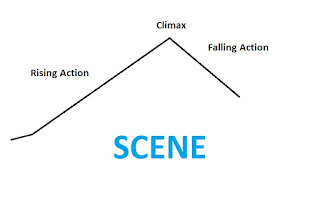
During the rising action, the character should (almost) always be proactive. During the falling action, almost always, the character is reactive. She's reacting to whatever just happened.
If you are familiar with Dwight V. Swain's approach to scenes, this is essentially what he calls the "sequel."
At this point in the structure, it may not matter too much what the character is doing physically, what matters is how she is reacting, and then, what she decides to do next.
If you are in the falling action, it may be perfectly acceptable to write a (short) bathtub story.
4. It's Focused on the Future
As mentioned above, we are often cautioned against writing a lot of introspection. This is in part because writers often focus introspection on the past.
But when the introspection is focused on the future--what could happen if a goal is or is not reached and/or what the character plans to do next--then it becomes more relevant and more interesting. In fact, not only does it not take away from the story, but it can strengthen the plot. Introspection can be used well to lay out significant stakes. And, technically, this could be done in a "bathtub."
Just make sure having the character think about the future, leads to him soon taking action to try to influence it.
5. The Point is to Show Nothing is Happening
In rare, rare situations, the point of a scene may be to illustrate that nothing important is happening, and no changes are taking place. Such scenes almost never work (and if anything, are usually better conveyed in summary), but, someday, in some story, you may find yourself in need of such a moment. A bathtub scene might arguably work there.
Just don't make it longer than it needs to be to get the point across.
There are a couple of other times you may get away with a bathtub scene: if it's somehow contributing to theme, or if it's super entertaining or intriguing.
All in all, be cautious.
They fail more often than they succeed.
61 notes
·
View notes
Text
The symbolism of flowers
Flowers have a long history of symbolism that you can incorporate into your writing to give subtext.
Symbolism varies between cultures and customs, and these particular examples come from Victorian Era Britain. You'll find examples of this symbolism in many well-known novels of the era!
Amaryllis: Pride
Black-eyed Susan: Justice
Bluebell: Humility
Calla Lily: Beauty
Pink Camellia: Longing
Carnations: Female love
Yellow Carnation: Rejection
Clematis: Mental beauty
Columbine: Foolishness
Cyclamen: Resignation
Daffodil: Unrivalled love
Daisy: Innocence, loyalty
Forget-me-not: True love
Gardenia: Secret love
Geranium: Folly, stupidity
Gladiolus: Integrity, strength
Hibiscus: Delicate beauty
Honeysuckle: Bonds of love
Blue Hyacinth: Constancy
Hydrangea: Frigid, heartless
Iris: Faith, trust, wisdom
White Jasmine: Amiability
Lavender: Distrust
Lilac: Joy of youth
White Lily: Purity
Orange Lily: Hatred
Tiger Lily: Wealth, pride
Lily-of-the-valley: Sweetness, humility
Lotus: Enlightenment, rebirth
Magnolia: Nobility
Marigold: Grief, jealousy
Morning Glory: Affection
Nasturtium: Patriotism, conquest
Pansy: Thoughtfulness
Peony: Bashfulness, shame
Poppy: Consolation
Red Rose: Love
Yellow Rose: Jealously, infidelity
Snapdragon: Deception, grace
Sunflower: Adoration
Sweet Willian: Gallantry
Red Tulip: Passion
Violet: Watchfulness, modesty
Yarrow: Everlasting love
Zinnia: Absent, affection
48K notes
·
View notes
Text
reblog if you enjoy napping, being cozy, being conked out, snoozing, wrapping up in blankets, sipping a hot drink, catching some z's, hugging a plushie, or otherwise relaxing and resting
32K notes
·
View notes
Text





★ 【COCOball】 「 スタレ 」 ☆
✔ republished w/permission
⊳ ⊳ follow me on twitter
721 notes
·
View notes
Text
Unlike most magical schools, this one is made up of five mystical towers that directly teach themselves without the need for professors. Every year, the towers of the God-Blessed, Druids, Arcanists, and Warlocks welcome new students, but even the name of the Fifth Tower was forgotten.
3K notes
·
View notes
Text
Time for the philosophical question!!
What do you think makes us human?
And following that question, do you believe that it is possible to take away that humanity? If so how?
825 notes
·
View notes
Text
I think the Hunger Games series sits in a similar literary position to The Lord of the Rings, as a piece of literature (by a Catholic author) that sparked a whole new subgenre and then gets blamed for flaws that exist in the copycat books and aren’t actually part of the original.
Like, despite what parodies might say, Katniss is nowhere near the stereotypical “unqualified teenager chosen to lead a rebellion for no good reason”. The entire point is that she’s not leading the rebellion. She’s a traumatized teenager who has emotional reactions to the horrors in her society, and is constantly being reined in by more experienced adults who have to tell her, “No, this is not how you fight the government, you are going to get people killed.” She’s not the upstart teenager showing the brainless adults what to do–she’s a teenager being manipulated by smarter and more experienced adults. She has no power in the rebellion except as a useful piece of propaganda, and the entire trilogy is her straining against that role. It’s much more realistic and far more nuanced than anyone who dismisses it as “stereotypical YA dystopian” gives it credit for.
And the misconceptions don’t end there. The Hunger Games has no “stereotypical YA love triangle”–yes, there are two potential love interests, but the romance is so not the point. There’s a war going on! Katniss has more important things to worry about than boys! The romance was never about her choosing between two hot boys–it’s about choosing between two diametrically opposed worldviews. Will she choose anger and war, or compassion and peace? Of course a trilogy filled with the horrors of war ends with her marriage to the peace-loving Peeta. Unlike some of the YA dystopian copycats, the romance here is part of the message, not just something to pacify readers who expect “hot love triangles” in their YA.
The worldbuilding in the Hunger Games trilogy is simplistic and not realistic, but unlike some of her imitators, Collins does this because she has something to say, not because she’s cobbling together a grim and gritty dystopia that’s “similar to the Hunger Games”. The worldbuilding has an allegorical function, kept simple so we can see beyond it to what Collins is really saying–and it’s nothing so comforting as “we need to fight the evil people who are ruining society”. The Capitol’s not just the powerful, greedy bad guys–the Capitol is us, First World America, living in luxury while we ignore the problems of the rest of the world, and thinking of other nations largely in terms of what resources we can get from them. This simplistic world is a sparsely set stage that lets us explore the larger themes about exploitation and war and the horrors people will commit for the sake of their bread and circuses, meant to make us think deeper about what separates a hero from a villain.
There’s a reason these books became a literary phenomenon. There’s a reason that dozens upon dozens of authors attempted to imitate them. But these imitators can’t capture that same genius, largely because they’re trying to imitate the trappings of another book, and failing to capture the larger and more meaningful message underneath. Make a copy of a copy of a copy, and you’ll wind up with something far removed from the original masterpiece. But we shouldn’t make the mistake of blaming those flaws on the original work.
156K notes
·
View notes
Text
Athena. Goddess of wisdom, strategies blah blah blah.
My new hyperfixation (or rather, a re-ignited one because she’s always intrigued me).
I’m going to admit she’s my favourite goddess not because of how nice or incredible she is- she isn’t. She’s a horrible person/goddess (no offense). And I think part of the reason why shes so intriguing is she actually has many layers to her and how different people interpret her is always so interesting.
People who know the myths will start to think she’s horrible and incredibly petty, always out for vengeance and stuff, yeah they’re not wrong.
“Canon” Greek Myths:
One of the most iconic myths about Athena is obviously the myth of Medusa. But if you’ve been hyperfixating long enough you’ll know that there’s so many versions of the myths. The original one was the Medusa was born a gorgon, Ovid’s version was that Athena got jealous (some even more recent interpretations) / mad at Medusa for breaking her vow of celibacy then turning her into a gorgon. Or Athena turned Medusa into a gorgon to protect her. They sound like very different goddesses. Other gods always seem to have straight forward personalities, Hermes a prankster always mischievous he delivers mail sometimes, Apollo he does music, drives a cool car. Of course each god has minor differences when it comes to version but never as jarring as Athena’s.
My interpretations/headcanons:
(Hot take)In my head, Athena is a bad person. She believes she’s being wise, she’s doing things for the greater good. Sometimes she fails to notice whether things are for the greater good or her good. She’s selfish. She’s delusional. Maybe even a bit of a narcissist who refuses to believes she can be wrong. Which makes her even more fun to imagine!!!
Modern retellings/greek mythology ‘fan fiction’:
Aka Percy Jackson. Her show and book version is already a bit different. In the book, she can be seen as a bit of a deadbeat parent, absent, a perfectionist. But ultimately someone Annabeth looked up to (at the beginning, at least). In Mark of Athena, we (I) see her to be a bit of a bully, kind of guilt tripping Annabeth to do stuff. In the show, however, she’s hasn’t even made an official appearance and she’s already so cruel. Not helping Annabeth because she ‘embarrassed’ her. This slight change did make her more similar to the more popular myths, but slightly altered reader’s impression of her.
Which is what makes her interesting.
I can go on and on about stereotypes (what’s the definition of wise?), societal standards, the change in people’s attitudes towards different things as time passes, how time passes. Heck, if I keep going on I’m certain I’m going to end up talking about the scale of time and our insignificance in the grand universe. But I’m not going to because that draws away from the main point of the blog. Greek mythology.
To me, Greek mythology is something that is timeless and up for interpretation all the time. I love debating about Greek mythology so come debate with me 🥊 (ignore my headcanon part tho leave that niche part of my brain alone).
If you noticed anything I got wrong (or maybe this post is utterly wrong in your eyes, do tell but maybe word it nicely sorry 😅) , tell me cuz I’m always up to learn more about other people’s opinions and different Greek myths!
#I wrote this at 1 a.m.#I need Athena crumbs#on a more fandom-ish side of things we can go wild with her character#she’s just so fun to imagine you get what I mean?#i’m obsessed#maybe a pointless post but they’re never intended for anyone else except myself anwyays#greek myth#greek mythology#athena#greek gods#percy jackson#there are so many examples of her different interpretations I can talk so long about them#which god should I hyperfixate on next?
3 notes
·
View notes
Text
neither.
I dream them up in my head but never type them out :)
5K notes
·
View notes
